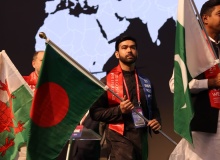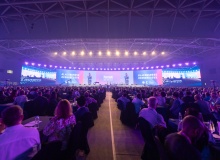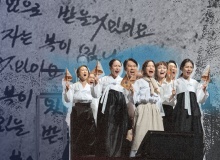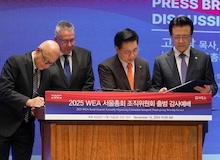


The World Evangelical Alliance held its general assembly in Seoul. Xesús Manuel Suárez shares his experience at a gathering that marks a turning point for the global evangelical body.
.png)
The Spanish Evangelical Alliance is proposing that the WEA hold its general assembly more frequently, that the international leadership be more accountable, and that national alliances regain a central role. It welcomes the profile of the new CEO. An interview with general secretary X. Manuel Suárez.

The shared love for Christ and the desire to make Him visible gives participants the courage to move beyond their differences, to work together and to seek mutual understanding.

South Korea is widely recognized as one of the most important mission forces in the contemporary period.

The emphasis on reconciliation, faith in the workplace, and the next generation offers a model for how the Ukrainian church can address its own context.

The World Evangelical Alliance signed a memorandum with Korean denominations that form the organising committee for the event to be held in Seoul in October 2025.
Christians protested against an anti-discrimination law that would restrict the freedoms of churches and individuals to live out their faith.

The ripples from this Congress will be felt for years. Whether it is a renewed emphasis on cross-cultural missions, a rethinking of justice and evangelism, or a new coalition to address migration.

The more than 5,200 attendees from 202 countries signed a ‘Collaborative Action Commitment’. The Seoul congress emphasised unity as the key factor in taking the gospel to every person, everywhere.
.jpg)
Vaughan Roberts reminded that the biblical truth about sexuality is “good news”. Other major contemporary challenges - social inequality, poverty, climate change - were addressed on the first full day at Lausanne 4 in South Korea.
.jpg)
We need polycentric leadership that draws on the resources of the worldwide body of Christ. Global wisdom is the antidote to the hidden virus of cultural captivity.

The ‘Love France’ initiative provides resources to pray for France; the safety and success of the games; the Church and the different evangelistic events in the Olympics.

At the end of September, Seoul will host the Fourth Lausanne Congress, where “global church collaboration for discipleship in all countries” will be promoted with 2050 on the horizon.
.jpg)
The South Korean-born Shincheonji group has been active in Switzerland since 2016. Experts warn that they target people aged between 18 and 25 and try to isolate them by a total commitment to their activities.

The number of Christians in Korea has plateaued for the past two decades since 2000 and has decreased drastically in recent years.
.jpg)
More than 700 migrants found faith in Jesus through this church's Migrants Centers in recent years. Thirty of them were trained as missionaries here and sent back to 13 countries.
CroppedCropped.jpg)
Although much of the focus was on preparations for the fourth Lausanne congress (Seoul 2024), participants were constantly challenged to think towards 2050 and beyond.
.png)
“Thousands of key global mission influencers from every nation on earth” will gather in South Korea fifty years after the first congress on world evangelization (Lausanne 1974).

Bridging deep divides through song, sacrifice and forgiveness. An article by Eiko Takamizawa.

The story is based on the director's childhood memories of his Christian Korean-American family in Arkansas during the 1980s. “I hope it offers some kind of hope after everything that’s happened this year”, says Lee Isaac Chung.

Scientists from Imperial College London and Berkeley University warn that “the risk of a second wave happening if all precautions are abandoned is very real”.
The only thing the Kim family has done, says Eunman Jeon, the son of North Korean Christians, is to “change the name of God and put his own. That is the system of government of the country”.

The coalition brings together Christian leaders and human rights campaigners. Kenneth Bae, the evangelical pastor who was detained by the regime of Kim Jong-un for two years, is one of its members.

Far East Broadcasting Company radio signal will be “unblockable by North Korean regime and reach the entire country with the message of Jesus Christ”.

Cross-cultural wisdom for a polycentric missions reality.

Las opiniones vertidas por nuestros colaboradores se realizan a nivel personal, pudiendo coincidir o no con la postura de la dirección de Protestante Digital.